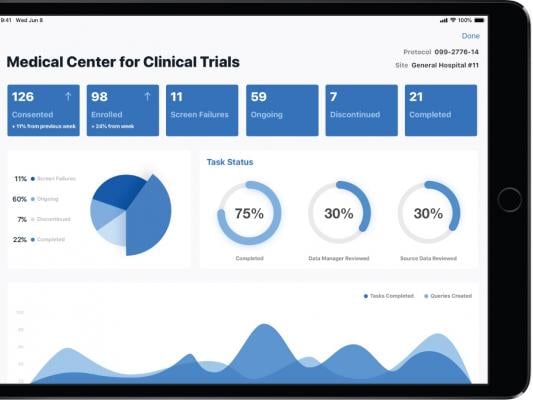
January 10, 2019 — Mobile app data collection can bring access to more potential clinical study participants, reduce clinical study timeframes and create more comprehensive sample sizes, according to research published in Survey Practice.
“It is critical that health and other national surveys represent the voice and experience of all Americans,” said senior author Ingrid Oakley-Girvan, senior vice president of research and strategy at Medable Inc., research director at the Public Health Institute, and associate member of the Canary Center at Stanford for Cancer Early Detection and the Stanford Cancer Institute. “Smartphone survey data can help policy makers allocate resources in realtime to respond to disease outbreaks such as opioid addiction. Our work sheds light on the value of smartphones to address declining participation rates, rising survey costs and poor coverage across demographics.”
Oakley-Girvan and co-authors Yasamin Miller, Cyrus DiCiccio, Juan Lavista, Cheryl Gore-Felton, Amanda Richardson, Carlos Acle, Jeff Hancock, Lorene Nelson and Oxana Palesh were interested in the impact that smartphones can have on health data survey collection.
They studied the response to a mobile app survey, built on the Medable Inc. platform, by deploying it in a college student population to determine if students would download the app, and to determine if the app would retain individuals in a study, two significant barriers being faced by researchers conducting population health surveys.
“Our findings show that mobile app data collection can fundamentally change survey research,” said Miller, first author and founder and managing director of YMG. “Using mobile apps could create a shift in health surveys, which could eventually lead to faster and more accurate health policies and cures.”
Declining response rates to traditional telephone surveys are hindering researchers in their abilities to recruit and study the most pressing medical issues. The study used Medable Inc.’s platform to provide efficient real-world data collection, monitoring and analysis.
The researchers partnered with faculty from Stanford University, the Cancer Prevention Institute of California (CPIC), OneTree, YMG and Castleton University, to leverage Medable’s platform to collect behavioral health and substance use data. The researchers built and deployed two apps in under six weeks.
Medable’s end-to-end (E2E) platform enables researchers without developer expertise to create and deploy HIPAA-compliant iOS and Android apps for clinical trials or research studies. “Creating mobile applications on a short timeline would not have been possible without the use of Medable’s Axon,” said Miller. “Medable’s platform enabled team members without coding expertise to contribute and play key roles in developing the study.”
For more information: www.medable.com


 January 05, 2026
January 05, 2026 









